Moving, communicating, promoting, and selling products all have to move through a process and structure. This structure is a marketing channel.
It’s a concept and term that is used to describe, in various ways, how a product gets from a producer to a consumer. It is the different ways we structure our distribution. It is the specific tactics we use to execute the marketing mix component of place.
Here, we are going to go through an overview of marketing channel with an example.
What is a Marketing Channel?
A marketing channel, or sometimes referred to as a distribution channel, is the mechanism that moves products from the manufacturer to the end consumer. Often, this is referred to as distribution, or in the context of the marketing mix, place.
It can also be used as a more general and encompassing concept. Including promotion channels like social media and content marketing. We will discuss some of these other uses throughout our overview.
The primary focus of our overview will be the traditional concept of a marketing channel. This is a branch of distribution and distribution channels. It will be describing how a product moves from the producer to the consumer in both business to consumer and business to business marketing.
Marketing Channel vs. Distribution Channel
Marketing channel and distribution channel are often used interchangeably. They are similar in almost all respects. There is one key difference in that one can be used more broadly than the other.
A marketing channel can include the concept of distribution channels. It can also include things like advertising channels and various communication channels. On the other hand, a distribution channel is strictly concerned with moving a product from producer to consumer. It is place in the marketing mix.
Here, we use this as distribution channel. But, we will discuss some of the others ways the concept can be used.
Types of Marketing Channels
Marketing channels, as we consider them in the context of place in the marketing mix, come with a handful of types. Marketing channels are broken down into four categories for distributing products.
These marketing channels encompass all the various ways producers, consumers, and intermediaries interact. It is how products move from producer to consumer. The four primary types of marketing channels are the following.
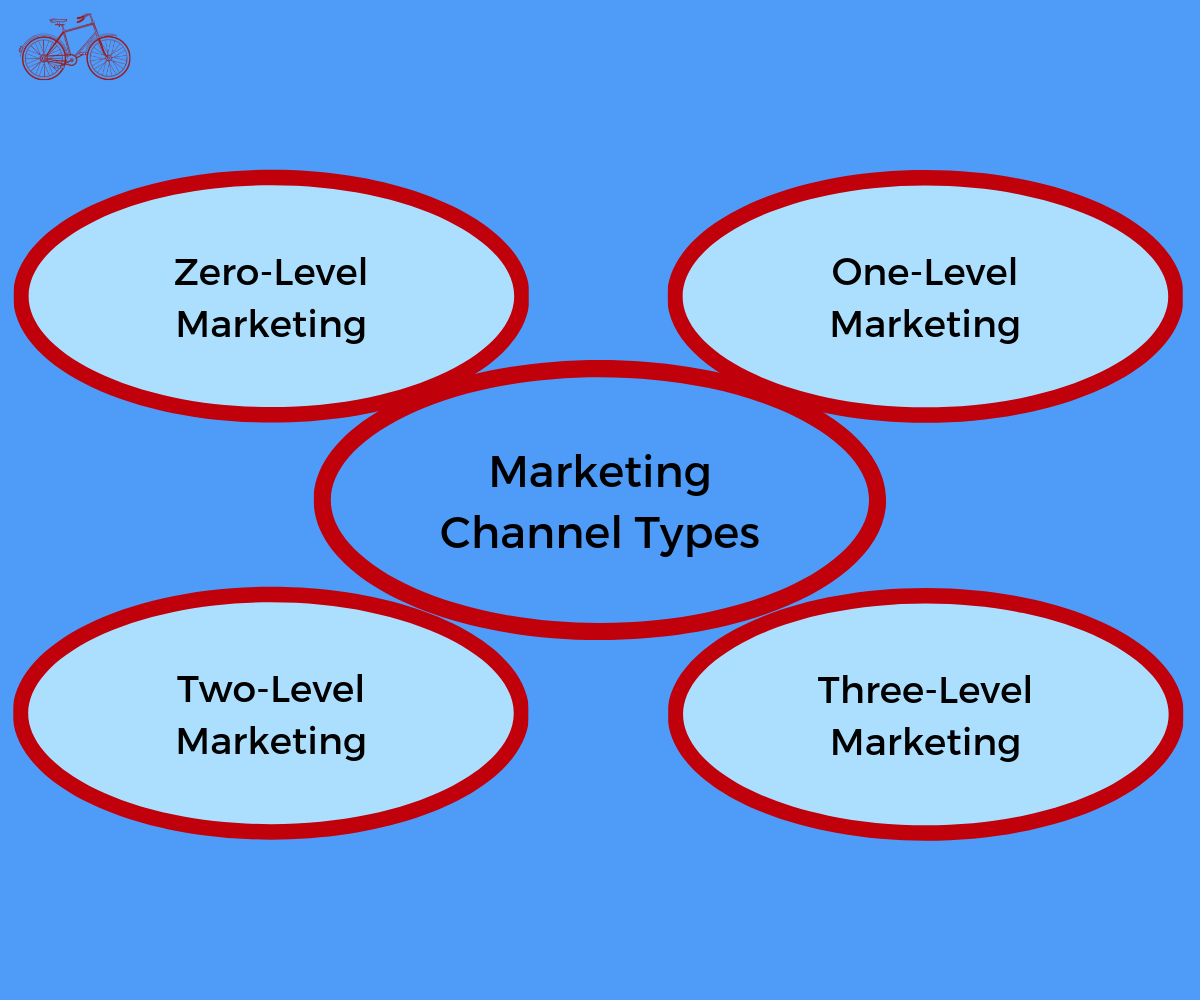
Zero-Level Marketing Channel
The zero-level marketing channel is a direct to consumer channel. It moves product from producer to consumer. This is becoming a more common approach to channel structure as more purchases occur online.
One-Level Marketing Channel
The one-level marketing channel uses one level of intermediaries. This means the producer moves their product to a retailer, wholesaler, or an agent, who then moves the product to the consumer. This is common for B2C products when working with retailers.
For B2B products, this can occur when working in new markets where there is no established channel to consumers. For example, when a company begins to expand internationally and needs a local entity to get products into the hands of consumers.
Two-Level Marketing Channel
A two-level marketing channel is a structure where the producer uses both a wholesaler and a retailer to move product to the consumer. This is a common B2C channel structure. It allows each intermediary to focus on a particular part of the channel. It is a highly scalable channel strategy for consumer products.
Three-Level Marketing Channel
The three-level marketing channel is a structure where a producer uses all possible intermediaries. They use an agency, wholesaler, and a retailer. This is most commonly used with consumer products expanding internationally.
The need for this structure is where a producer needs an agent to manage the entry into a new international market. The agent finds and works with the wholesaler, who then works with their retail partners.
These four types of marketing channels cover all possible methods of distribution. This is how the marketing mix component place is described. In a later section, we will put together a visual of all these potential marketing channels.
Marketing Channel Intermediaries
Each of the different types of marketing channels includes a different number of intermediaries. There are a set number of intermediaries. And these make up the various channel levels.
The following are the different intermediaries.
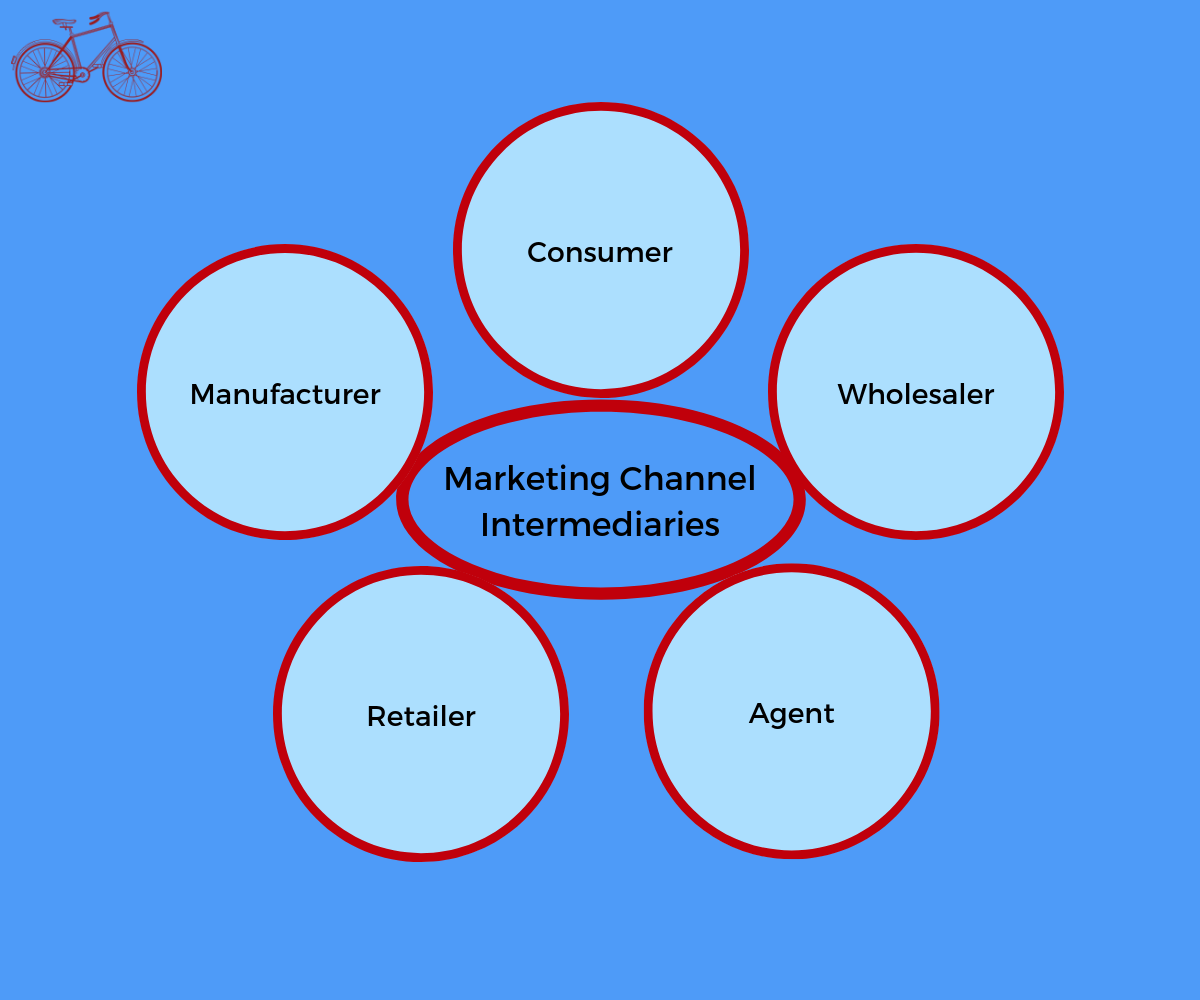
Manufacturer
The manufacture is the top of all marketing channels. This is the producer of the product that needs to move their product to a consumer.
Wholesaler
The wholesaler is an intermediary that purchases and stores bulk quantities of products from the producer. They provide a way to move products geographically. And they break-down products so a retailer can use them.
Retailer
The retailer is the intermediary who interacts directly with the consumer in all types of marketing channels, except zero-level distribution. Zero-level distribution is the only type of marketing channel where a retailer is not present.
Agent
An agent is an intermediary that operates between the producer and a wholesaler. They are typically used in a global expansion campaign. In this context, they assist the producer in finding a local wholesaler.
Consumer
The consumer is the end user of the product. This is where marketing channels end. And this is the person a marketing channel is designed to satisfy with the manufacturer’s product.
These are the most common types of intermediaries within a marketing channel. They can be mixed and matched depending on your business use case and the marketing channel structure that works best.
Marketing Channel Structure
Now that we understand the different types of marketing channels and the intermediaries that make them up, it’s time to see what it all looks like.
Below is a layout of the different marketing channel structures and their intermediaries.
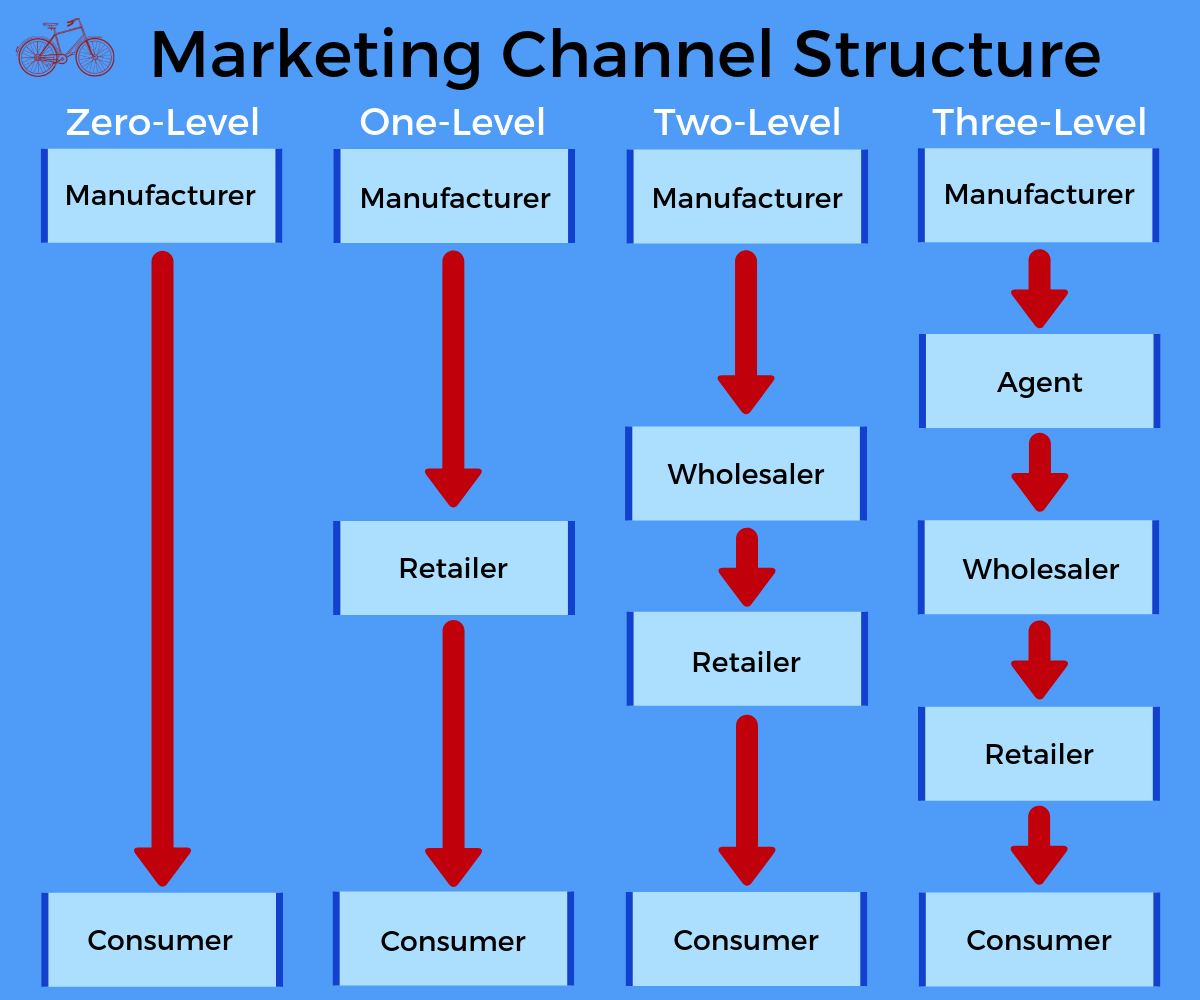
Other Types of Marketing Channels
As we discussed in the introduction and definition section of what is a marketing channel, we’ll take a look at other ways the term marketing channel is used.
As marketing channel is often used as a broad term, it can be used to refer to a general concept of channels. These can also be considered marketing channels, but they are specific channels to a specific aspect of marketing.
The following are some of the various ways the term marketing channel can be used.
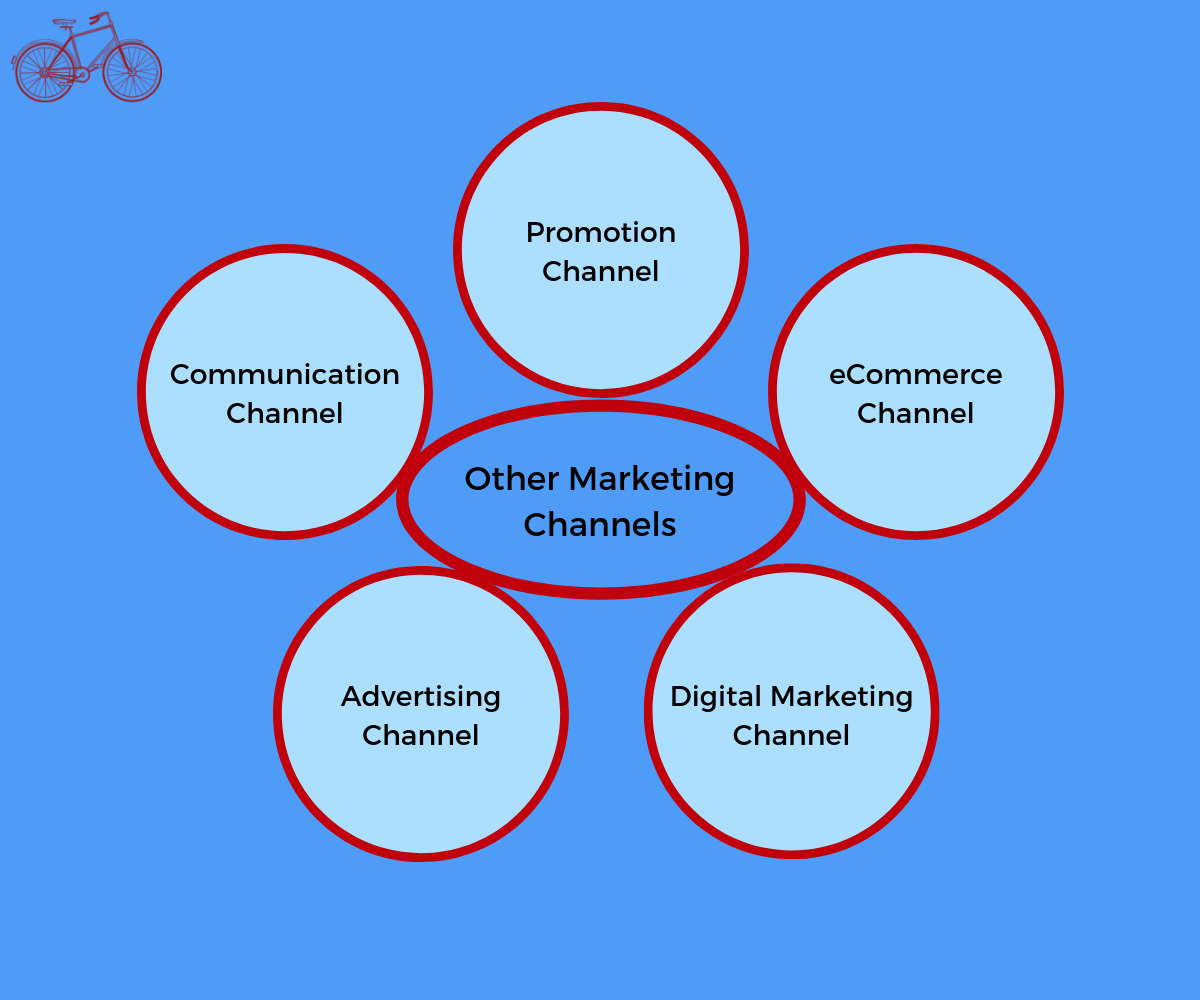
Communication Channel
Communication channels, as they pertain to promotion in the marketing mix, can often be referred to as a channel. Communication channels are things like email, phone, text message, website chat, or even social media. They are the channels that are used to communicate with our customers.
Promotion Channel
A promotion channel can be referred to as a marketing channel. Promotion channels are marketing channels, but a specific type of channel for communicating to prospects about our products. Promotion channels are things like PR, advertising, social media, content marketing, direct mail, or even direct selling.
Promotion channels are all the ways we promote our products to our target audience.
eCommerce Channel
Ecommerce channels are marketing channels that are dedicated entirely to selling online. These can be advertising channels, like Google Shopping. It can also include online retailers like Amazon and Man Outfitters.
This is a general term in the context of eCommerce and it can be used to mean many things.
Advertising Channel
Marketing channel is sometimes used to describe an advertising channel. Advertising channels are things like Google AdWords, radio advertising, print advertising, and television advertising. There are many other advertising channels as well. Thus, they can often be referred to as marketing channels.
Digital Marketing Channel
Digital marketing is its own area of marketing with many different areas. A channel specific to digital marketing can often be referred to generally. These are channels such as content marketing, SEO, SEM, social media, or eCommerce. All of which are channels in the context of digital marketing.
The reason there are so many uses of the concept is that marketers tend to be specialized in a particular area of marketing. Then, they refer to the channels in their area as a marketing channel. This is not wrong or bad. It is just good to understand that this occurs. Then, familiarize yourself with some broader marketing concepts.
The above is just a few of the various ways that the concept of marketing channel is used.
Example of a Marketing Channel
Now that we understand the overall concept a bit better, we should take a look at an example. For our example, we are going to look at the beverage industry. Specifically, we will look at Anheuser-Busch, owned by AB InBev.
Anheuser-Busch tends to use a two-level channel. They move their beverages in bulk to local distributors. Then, those local distributors work with the local retailers in their area. This particular strategy is used as a local area can have many small liquor stores that need to be served.
This channel strategy looks like the following:
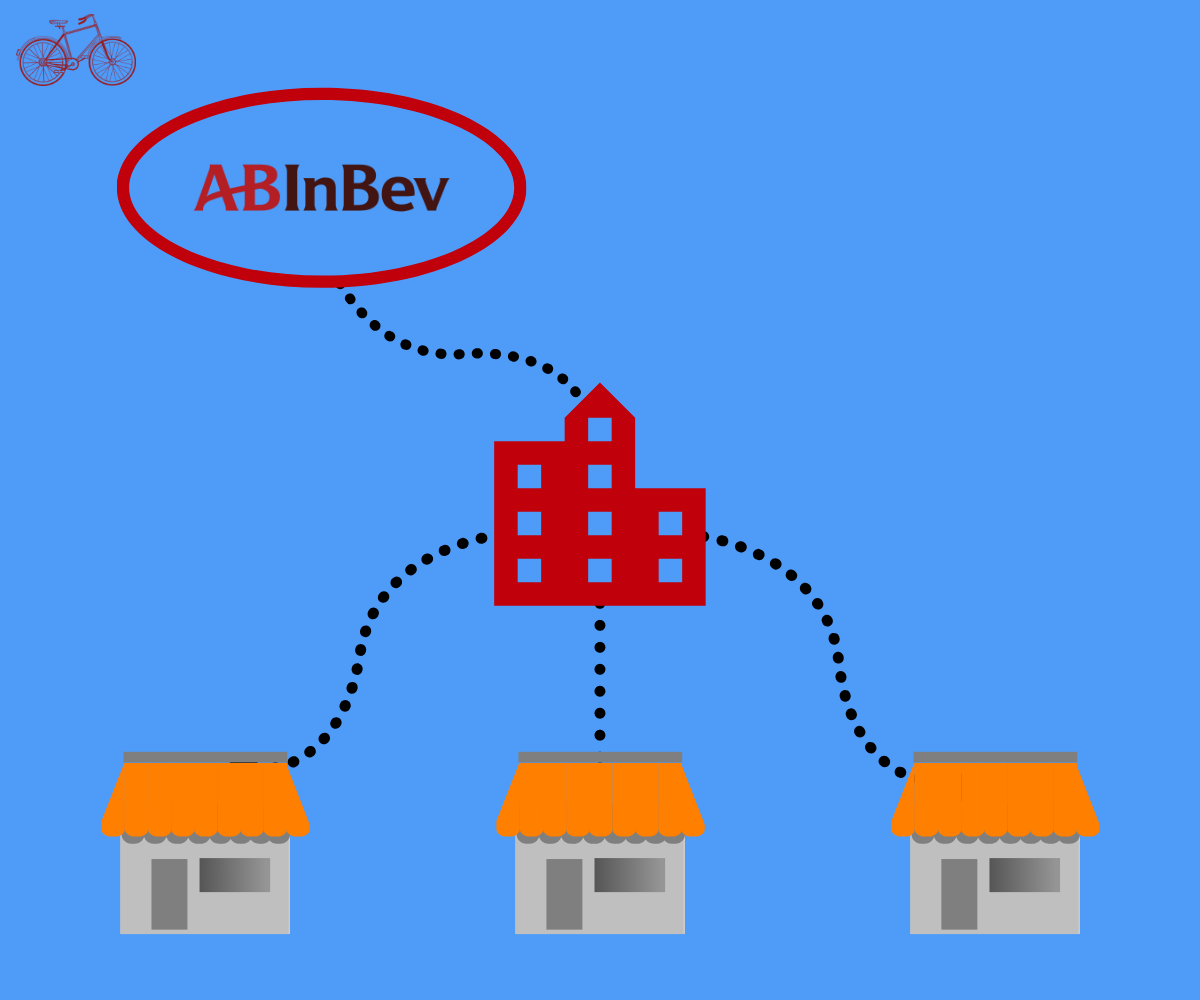
This is just one example of a common two-level marketing channel in the beverage industry. This is commonly applied to various consumer industries.
Marketing channels are an important concept in marketing. Especially as it has to do with marketing planning, marketing strategy, and the marketing mix. This is an overview of marketing channel that can help to better understand your own marketing process and activities.
